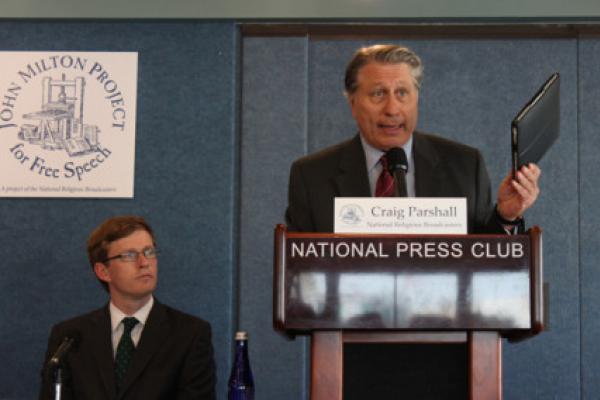Christian culture, along with the spiritual leaders, churches, institutions, communities, and other entities it consists of, are supposed to make our faith stronger. But in many cases the opposite happens, and it actually causes our faith to die. In religious environments often surrounded by cynicism, hypocrisy, hurtfulness, and disappointment, it’s easy to give up on Christianity. Here’s how to prevent spiritual burnout:
1) Avoid Legalism
Historically, Christianity has always struggled with legalism, where churches often forced beliefs and practices on people with domineering power. Legalistic groups thrive on strict rules, ruthlessness, enforced doctrines, and authoritarian judgment.
Various agendas — that are valued more than the loving gospel of Christ — are promoted and pushed onto people. And it wasn’t that long ago (in fact, it still exists) that American believers were expected to be anti-gay, conservative, pro-choice, anti-evolution fundamentalists.
If fear, condemnation, and shame are used as spiritual weapons to gain power, influence, and control — run!
The annual pilgrimage to Mecca, known as the hajj, presents a gantlet of health challenges. This year’s pilgrimage, which falls Oct. 13-18, is no different.
Of particular concern is the Middle East Respiratory Syndrome coronavirus, which was first reported in Saudi Arabia last year. At least 120 cases have been reported in the country, including 49 deaths, according to the World Health Organization and Saudi officials.
Todd Starnes did not think he had violated Facebook’s community standards when he posted about “wearing an NRA ball cap, eating a Chick-fil-A sandwich, reading a Paula Deen cookbook and sipping a 20-ounce sweet tea” and generally being politically incorrect.
Workers at Facebook thought otherwise, blocking the host of “Fox News & Commentary” for 12 hours before issuing an apology.
Starnes and other conservatives say the incident is part of increasing viewpoint discrimination from organizations such as Facebook and Google. They want these new media companies to protect their freedom of speech.
I got fitted for a custom-tailored suit this week.
Not because I suddenly found a pot of money. I didn’t, and I didn’t need to. The cost for this Hong Kong tailor is comparable to what I have been paying for off-the-rack suits.
My problem is middle age. My shifting body type makes off-the-rack suits too wide in the shoulders and too long. It’s proof that life keeps on changing, and that the way forward must include getting unstuck from old ideas.
At an interfaith summer camp in northern New Jersey, two dozen children explored a swamp to learn how creatures depend on safe water.
In Southern California, a Unitarian Universalist congregation installed a dry well so water from its church rooftops drains into underground pipes to replenish the water table.
In Vermont, members of a Lutheran church removed cars and appliances that had been dumped in a nearby stream and restored its banks with local willows and oaks.
Across the country, water has become more than a ritual element used in Christian baptismal rites or in Jewish and Muslim cleansing ceremonies. It has become a focus for worshippers seeking to go beyond water’s ritual symbolism and think more deeply about their relationship to this life-giving resource.
Editor's Note: The following is the text of a sermon preached on Oct. 7 at the weekly chapel service at American Baptist Seminary of The West in Berkeley, Calif.
A woman struggling with postpartum depression died last week, killed either when her car crashed into the gates of the White House or by the bullets fired upon her by security guards and police. Her child survived without physical injury.
Social media were alive with speculations of terrorism, domestic or international, with connections between this incident and the government shutdown, with any number of theories about gun violence. We were ready for it. Raw and weary before the story even came to light, we were primed for the explosion of speculation and public bewilderment.
Have you not known?
Have you not heard?
It's a terrible story from every angle. We have so many such stories describing what is happening in our nation lately. We have much of ourselves invested in every aspect of the shutdown.
We are raw.
The spiritual noise is deafening.
We are rendered blind by all we see. It is too much.
It is as if the prophets are silenced;
souls have been rendered mute, blind, and deaf.
Have you not known?
Have you not heard?
Events such as these touch a raw place in our souls. Our souls struggle to proclaim the greatness of the Lord. So we turn instead to the sourness of our neighbor. We proclaim their deficits to the highest heaven.
This morning a Canadian woman wrote such an interesting comment on an old post of mine, "Rationing is not a four-letter word," that I want to share it with you. I don't know the author, her full name (though she tells me her first name is LaVonne, so she's obviously a great person), or her contact information, so I can't give her full credit. But thanks, LaVonne-in-Canada: I learned a lot from you.
Here's what she wrote about how Canadian health care works for her. I've added a few comments in italics, in case you want to compare the situation of LaVonne-in-Canada with that of LaVonne-in-the-United-States.
The world as we know it may end on Oct. 17.
This statement seems hyperbolic. It sounds like another absurd prediction of the end times that garners far too much attention from the media. But this isn’t about the fulfillment of biblical prophecy. Unless the Congress raises the debt ceiling, Oct.17 is the date that the United States government runs out of money to pay its bills.
The consequences could be catastrophic.
Defaulting on our financial obligations would shatter the global confidence in the U.S. dollar that has made it the worldwide reserve currency. U.S. Treasury bonds would no longer be perceived as safe investments, which means creditors would demand higher interest rates to purchase the bonds because of the increased investment risk. The rise in interest rates would make U.S. debt more expensive to finance, leading to more government spending and slower economic growth. The U.S. Treasury believes a default could cause another recession far worse than what we experienced in 2008.
Of course, this pending crisis is completely manufactured and entirely avoidable.







